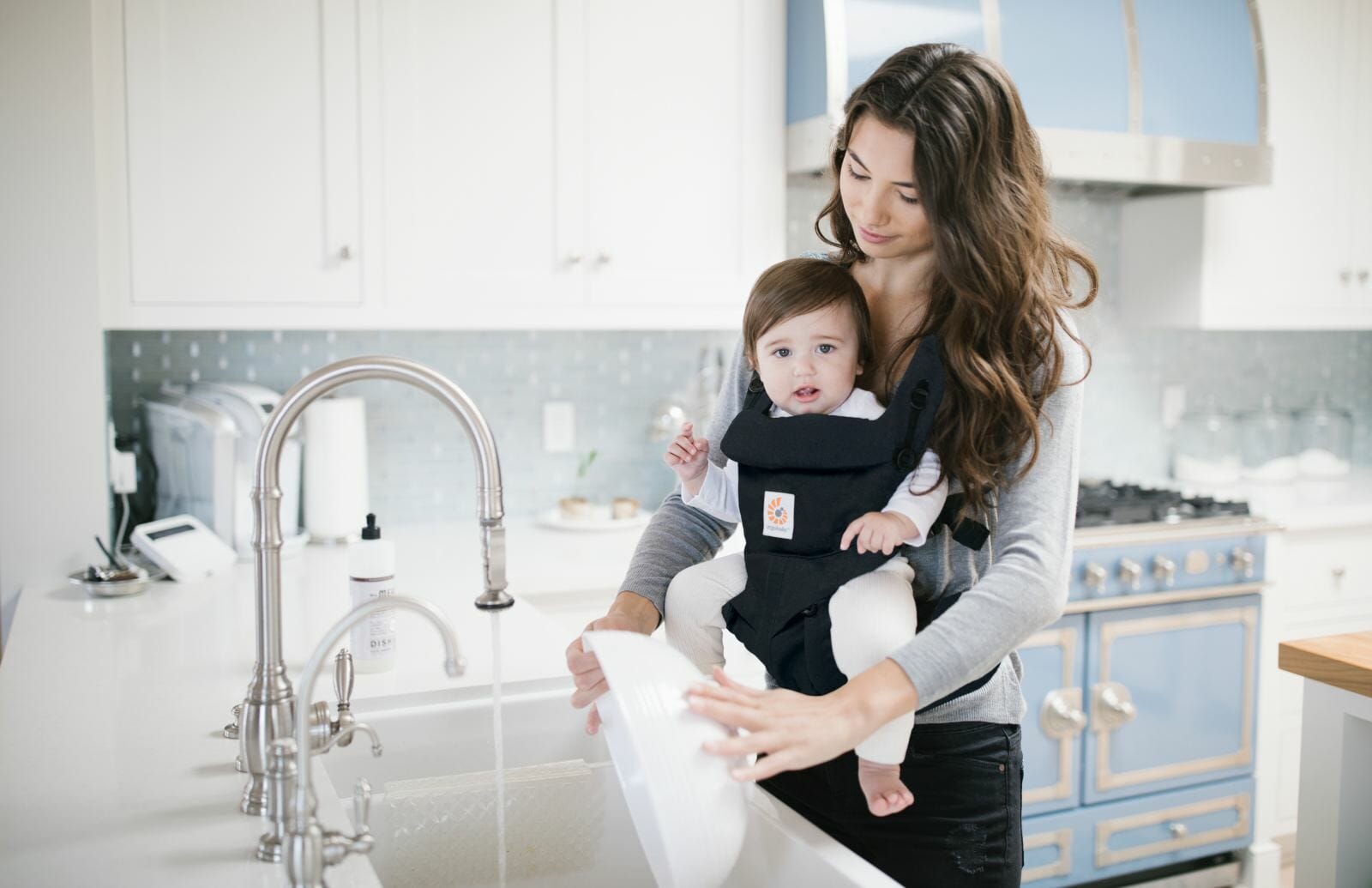
When you become a parent, you become more aware of germs and all the places germs can be. And now, thanks to the global pandemic we’re all living in, germs are even more at the front of our minds. We’re on high alert, constantly washing our hands and disinfecting everything that comes into our homes, fighting a war against these pesky microscopic organisms so our families don’t get sick.
While exposure to germs can be good for babies because it helps build up their developing immune systems, you never want to intentionally expose your baby to viruses and bacteria that cause them to get sick. You can’t keep every germ away from your little one, but there are several things you can do to protect them.
Wash your hands.
If there’s one thing we’ve all been reminded of during the COVID-19 outbreak, it’s how to properly wash your hands. Most germs are spread by touch. Washing hands with soap and warm water and scrubbing for at least 20 seconds is the best thing you can do to prevent spreading germs to your baby. But it’s not just you. You also want to keep your baby’s hands clean and ask anyone who wants to hold your baby to first wash their hands.
Stay away from sick people.
This tip is about as obvious as you can get. But hey, we all had to be reminded how to wash our hands this year, so maybe some things aren’t as simple or straightforward as we think. If you know someone is sick, don’t go to their house and don’t invite them to yours. There are some instances where you don’t know if someone is sick, so if you want to err on the side of caution, then keep a safe distance from people and/or have them wear a mask around you and your baby.
Avoid crowded places.
It’s good for you and your baby to go on walks or hikes outside in nature. The fresh air will do wonders for both of you. But it’s best if you don’t put your baby in their stroller for a walk around the mall or for a ride on the subway to go to your favorite restaurant. You also want to avoid grocery and retail stores during their peak hours. It’s a lot easier for your baby to pick up germs when they’re exposed to more people in a confined, poorly-ventilated area.
Wear your baby.
When you have to go out in public, keep your baby close to you by wearing them in a baby carrier. This will help protect your baby from germs because most people don’t try to touch or get too close when you’re babywearing. One of the biggest threats to your little one’s health is other people. So if you’re worried about going out in public or tend to be afraid to speak up when someone is doing something that makes you uncomfortable, such as a stranger getting too close to your baby, let the baby carrier do the talking for you. And then add it to your list of reasons to love babywearing!]
Breastfeed if you can.
Breast milk isn’t a magic potion that protects your baby from ever getting sick. But it does have antibodies that can help boost your baby’s immune system and protect them from illness.
Not all moms are able to breastfeed, though, and that’s OK. It doesn’t mean your baby is more likely to get sick. If you are concerned, you can always talk to your pediatrician about the best formula to use and other preventive measures you can take to help protect your baby from germs.
Know when to toss and when to refrigerate breast milk and formula.
When bottle-feeding, whether you use breast milk or formula, make sure you dump any excess down the sink after a feeding. As your baby drinks from a bottle, they can backwash saliva into the bottle, which can then lead to a buildup of bacteria and digestive enzymes that will contaminate the milk or formula.
Another thing to keep in mind with feeding is to make sure that you are properly storing and preparing breast milk or infant formula. Spoiled breast milk and formula don’t smell good, but more importantly, neither is good for your baby’s health.
Clean and disinfect high-trafficked areas in your home daily.
We all try and keep our homes clean, especially with a new baby around. But did you know there’s a difference between cleaning and disinfecting? Cleaning typically involves using soap and water to remove dirt and germs, while disinfecting kills germs and viruses using either chemicals or natural disinfectants. Cleaning your home’s door knobs, stair railings, kitchen counters, refrigerator door, cell phones and TV remotes is good to do because it lowers the risk of you spreading germs and infections to your baby. But it’s even better to disinfect after you clean high-trafficked areas in your home because it lowers the risk of spreading germs even more.
Bonus tip: Leave a surface visibly wet for a few minutes before wiping it down to kill illness-causing germs and bacteria. Most disinfectant products list on their product label how long to leave a surface wet, but 4-10 minutes is the average recommendation.
What other tips for protecting babies from germs do you have for moms and dads? We all want our kids to be healthy, so let’s band together and share our tips and knowledge!



